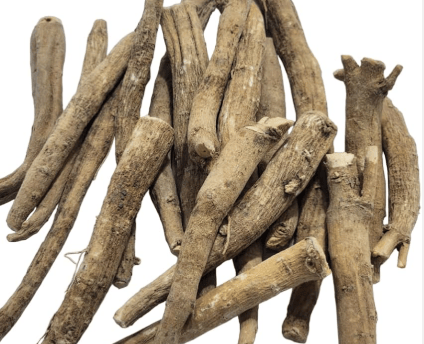Ashwagandha for Fitness: Boost Recovery and Energy Naturally
FITNESS, MUSCLE RECOVERY & PERFORMANCE


In the world of fitness, achieving optimal performance and rapid recovery is a goal many strive for. Among various supplements available, Ashwagandha, an ancient herb, has gained traction for its potential benefits in enhancing athletic performance and promoting recovery. This article explores the forms available, common symptoms that may warrant its use, underlying causes for fatigue, and offers recipes for incorporating this powerful herb into your regimen, alongside recommended dosage, side effects, and precautions. We’ll delve into the scientific evidence backing its effectiveness, providing references and links for further reading.
What is Ashwagandha?
Ashwagandha (Withania somnifera) is an adaptogenic herb traditionally used in Ayurvedic medicine. Known as "Indian ginseng," it is lauded for its ability to enhance stamina, reduce stress, and support overall well-being. The adaptogenic properties help the body adapt to physical and mental stressors, making it particularly beneficial for athletes and fitness enthusiasts.
Forms Available
Ashwagandha is available in several forms to suit individual preferences:
Powder: Ground from the root, this is a versatile form that can be mixed into smoothies, teas, or even used in cooking.
Capsules: These provide a convenient option for those who prefer not to taste the herb.
Liquid Extracts: Often used for faster absorption, liquid extracts can be taken directly or added to beverages.
Teas: Some companies produce herbal teas infused with Ashwagandha, offering a calming beverage option.
Common Symptoms and Causes of Fatigue
Fatigue can stem from various factors, including stress, poor sleep, nutritional deficiencies, and rigorous physical training. Common symptoms associated with fatigue include:
Persistent tiredness
Decreased motivation
Muscle soreness
Mood swings
Difficulty concentrating
Understanding these symptoms is crucial in identifying if Ashwagandha can play a role in your recovery strategy. The causes of fatigue can vary greatly; chronic stress and insufficient recovery time after workouts can significantly affect energy levels and performance.
Benefits of Ashwagandha in Fitness
1. Boosting Recovery
Ashwagandha is known for its anti-inflammatory properties. After strenuous workouts, the body undergoes micro-tears in muscles, which can lead to soreness and fatigue. By reducing inflammation, Ashwagandha can potentially speed up recovery times, allowing athletes to return to training more swiftly.
2. Enhancing Energy Levels
Scientific studies have shown that Ashwagandha may enhance physical performance. A randomized, double-blind, placebo-controlled study published in the Journal of the International Society of Sports Nutrition demonstrated that participants who took Ashwagandha exhibited significant improvements in strength and endurance compared to the placebo group. This boost in energy levels can be particularly beneficial during workouts, improving overall athletic performance.
3. Stress Reduction
Ashwagandha’s adaptogenic properties help manage stress, a significant contributor to fatigue. Research published in the Indian Journal of Psychological Medicine found that Ashwagandha supplementation significantly reduced cortisol levels, a hormone linked to stress. Lower stress levels contribute to better recovery and enhanced energy for subsequent workouts.
Recipes to Incorporate Ashwagandha
Incorporating Ashwagandha into your diet can be easy and delicious. Here are a couple of recipes to try:
Ashwagandha Smoothie
Ingredients:
1 banana
1 cup spinach
1 tablespoon Ashwagandha powder
1 tablespoon almond butter
1 cup almond milk
Honey (optional)
Instructions:
Blend all ingredients until smooth.
Adjust sweetness with honey if desired.
Serve chilled.
Ashwagandha Golden Milk
Ingredients:
1 cup coconut milk (or any milk of choice)
1 teaspoon Ashwagandha powder
1/2 teaspoon turmeric powder
1/2 teaspoon cinnamon
Sweetener of choice (honey, maple syrup, or stevia)
A pinch of black pepper
Instructions:
Heat the milk in a saucepan until warm but not boiling.
Stir in Ashwagandha, turmeric, cinnamon, and sweetener.
Add a pinch of black pepper to enhance the absorption of turmeric.
Whisk until well combined and serve warm.
Dosage
While there is no universally recommended dosage for Ashwagandha, studies suggest that a daily intake of 300-600 mg of standardized extract (with at least 5% withanolides) can be effective. It's important to start with a lower dose to assess tolerance and gradually increase as needed.
Side Effects and Precautions
Though Ashwagandha is generally considered safe, some individuals may experience side effects such as:
